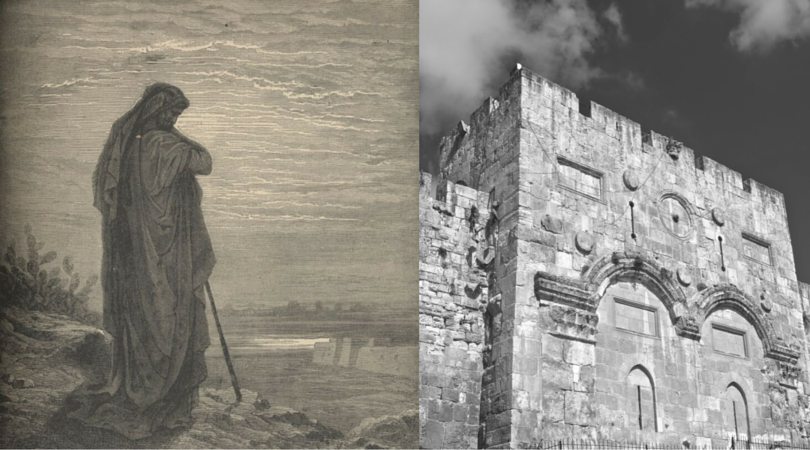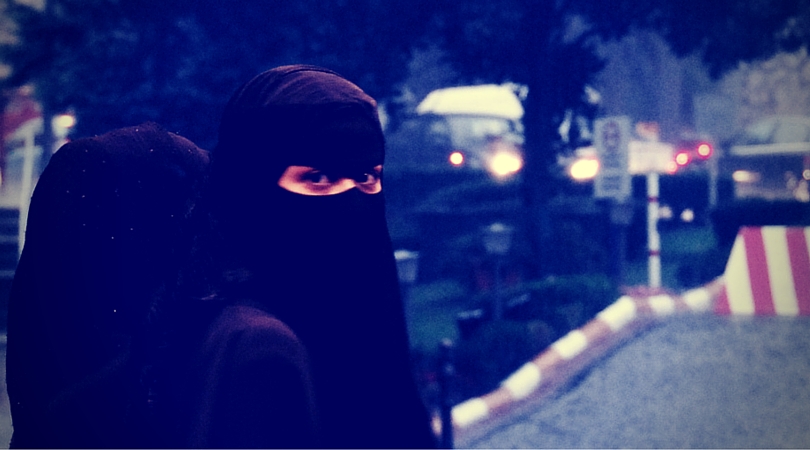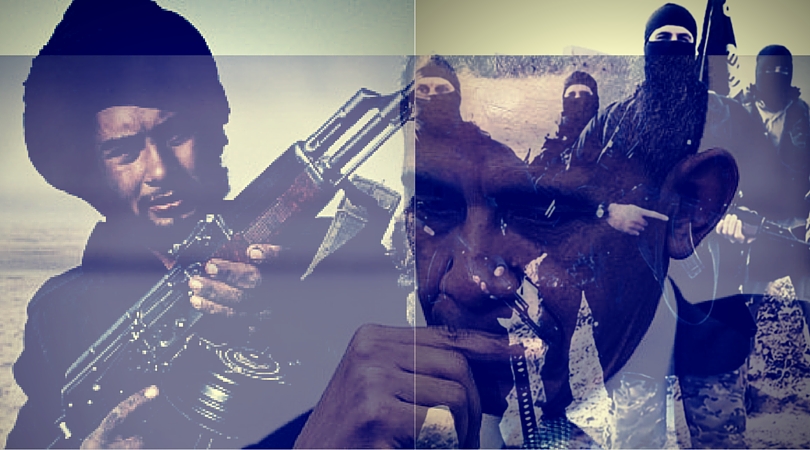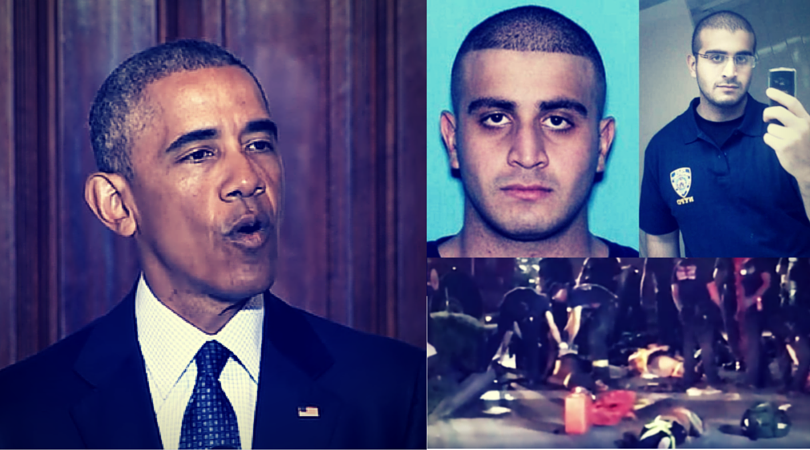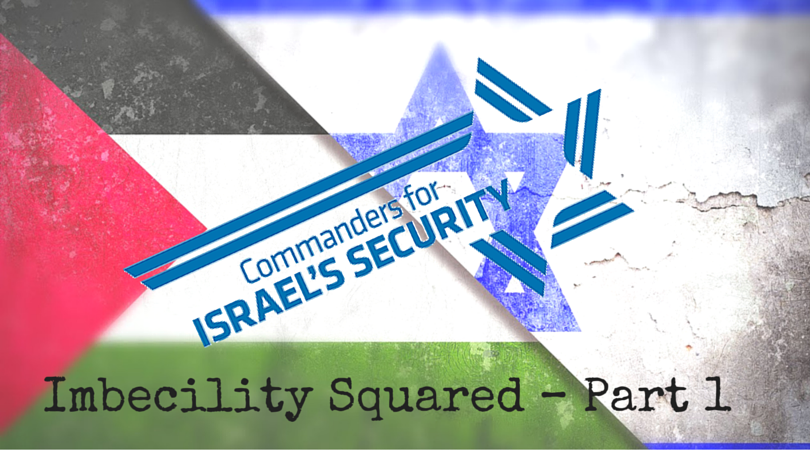“Two men remained behind in the camp, the name of one was Eldad and the name of the second was Medad, and the spirit rested upon them; they had been among the recorded ones, but they had not gone out to the Tent, and they prophesied in the camp. The youth ran and told Moshe, and he said, ‘Eldad and Medad are prophesying in the camp’. Yehoshua Bin Nun, the servant of Moshe since his youth, spoke up and said, ‘My lord Moshe, incarcerate them!’ Moshe said to him, ‘Are you being zealous for my sake? Would that the entire people of HaShem could be nevi’im, if HaShem would but place His Spirit upon them!’” (BAMIDBAR 11:26-29)
While both the youth and Yehoshua had expected their teacher to be angry with Eldad and Medad, Moshe astonished them with his wish that the entire Hebrew Nation become prophets. One navi per generation cannot be enough as no one else would be capable of grasping his Divine message. In order for the masses to understand and internalize the basic teachings being communicated by the leading prophet, all Israel must attain some minimum level of nevua.
Israel’s concept of nevua should not be confused with the notions of divination or fortunetelling found amongst other peoples. The Hebrew word navi is to a certain extent mistranslated by the word “prophet” which, according to Greek etymology, designates “a person who foretells.” The navi has a much more exalted role, since he is a spokesperson in this world for the Kadosh Barukh Hu, who “creates the expression (niv) of the lips” (YISHAYAHU 57:19). Thus, the navi is HaShem’s interpreter, charged with transmitting a message to the people. This message is not limited to a prediction of the future, for it possesses all the dimensions – moral, spiritual, meta-physical and meta-historical – of authentic knowledge in the broadest sense of the term.
Nevi’im are not mere forecasters. If they display the ability to foretell the future, it is only because they have achieved a sufficient level of emotional maturity and identification with the collective Hebrew soul to recognize the unity of Creation and perceive it from the back end. This perception allows them to attain a higher understanding of the world from a holistic perspective, as well as its most secret inner workings, at various levels of existence. This perspective in turn allows them to see the evolution of this enormous system of forces we call Creation. In this sense, a prophet is comparable to the scientist whose knowledge of the interplay of forces composing a limited system allows him to predict its evolution. The navi is no more a medium than the scholar announcing an eclipse of the moon. The scholar’s clairvoyance does not stem from some mysterious power but is actually the fruit of his learning, which permits him to grasp dimensions of reality invisible to others.
Throughout Scripture, we see prophets failing to rescue Israel from physical and spiritual threats. These failures are not due to a shortcoming on the part of the navi or his message but rather in the public’s ability to receive that message. There are recorded cases in which prophets have been dismissed by Israel’s political leadership and portrayed to the people as irrational public menaces. These prophets spoke a language of pure simplicity that brushed off the psychological barriers of the masses – especially those stuck in their egoistic illusions of separateness.
The Hebrew Nation is not the sum total of every Jew but rather one colossal spirit – Knesset Yisrael – that manifests itself in space and time through millions of bodies. While human beings each possess a personal soul, Israel shares one massive national soul – like a giant tree of which each Jew is an individual branch.
Rabbi Avraham Yitzḥak HaKohen Kook teaches that the highest level of Ahavat Yisrael (love for Israel) a person can achieve results from obtaining the belief, knowledge and deep understanding of Israel’s true inner essence and unity. A man who loves his son does not simply love the sum total of each limb. He loves his child as a single entity and therefore loves every individual piece of that entity. He can see each finger, leg and ear as an expression of that one soul he knows to be his son.
Through a deep self-awareness and love for Knesset Yisrael, the navi understands himself to be one with every Jew and simply a piece of a much greater whole whose distinct value derives from his personal contribution to that whole. But Jews trapped in their illusions of separateness view themselves as individuals detached from the bigger collective and therefore have trouble grasping the prophet’s impassioned language. Their illusions erect psychological barriers that cause them to perceive the navi as insane.
Rashi explains regarding SHMUEL I 18:10, that: Vayitnabeh, usually translated as “and he prophesied” is used in this verse to describe King Shaul’s mental illness because both a prophet and a madman express ideas often unintelligible to those around them.
Throughout Israel’s history, nevi’im are rarely taken seriously because the masses are seldom on a level to understand them. Therefore, a “prophet” – one who through deep love and greater consciousness has already broken free of his own illusions – is most often unable to bring his message to people whose fortified egos shield their hearts from his words.
Although Moshe wishes for all Israel to become nevi’im, not every Jew need reach the same heights. In his Guide to the Perplexed, the Rambam enumerates eleven distinct levels of nevua (with Moshe surpassing them all). And while it may not be necessary for each Jew to attain the highest plane of Divine Spirit, it is still necessary for us each to develop a minimal level of prophecy – a genuine sensitivity to Israel’s national situation – in order to understand the words of the greater nevi’im who come with simple messages of warning or salvation.
As the Jewish people return to national independence, we have already seen sparks of the Divine Spirit return, specifically among those whose compassion for their people has empowered them to break through their own psychological barriers. Clear illustrations of what the Rambam describes as the first level of nevua can be found in the valor and heroism of the pre-state Jewish freedom fighters and subsequent Israeli soldiers whose deeds resemble those of Shimshon, of whom it says “A spirit of HaShem came over him… and he struck down thirty men” (SHOFTIM 14:19). And a unique example of an even higher prophetic level in modern times was the revolutionary Hebrew poet Uri Zvi Greenberg.
The fact that Greenberg’s poetry features the pre-state Jewish underground, the Holocaust in Europe and Hebrew wars of liberation would not astonish anyone unless they were to read the dates at the bottom of each poem. Each historic event was recorded by the poet several years before actually occurring. Fellow poet Ḥaim Naḥman Bialik once asked Uri Zvi how he was able to write of the Holocaust and describe the slaughter of millions of Jews in 5682 (1922). Greenberg replied “But I see it.” In fact, many of the poems inReḥovot Hanahar, a 5711 (1951) volume detailing the Shoah, were written the previous decade before reports of Nazi atrocities had begun to reach the world. Yet all of the details that later emerged corresponded to the words found in Greenberg’s poetry. Holy of Holies describes the brutal murder of the poet’s mother. He had written it before the actual event from a nightmare he once had, simply recording what he torturously saw.
From 5682, Uri Zvi wrote and spoke incessantly about the terrible catastrophe approaching Europe’s Jews. But although his poems were widely accepted as great cultural works, the masses were not able to heed their warnings or to recognize the dangers rapidly approaching.
Throughout the decade leading up to World War II, the poet pleaded with the Jews of Poland to organize an emergency evacuation home to Palestine. But the people could not grasp the truth in Greenberg’s warnings. Trapped in the day-to-day realities of their individual lives, most Jews were too shortsighted to see the events developing around them.
Following the miraculous Exodus from Egypt, the Children of Israel were crossing through the Sea of Reeds to freedom. The Midrashrelates that one Hebrew complained to another about the mud they had to walk through in order to get across (Shemot Rabbah 24:1). They were on their way from slavery to freedom and one man could not see past the mud on his feet. A navi does not allow the mud to concern him because he can envision a greater historic picture unfolding. He sees the course of events shaping and is consciously attached to the higher life of Israel’s national soul, encompassing each Jew in every generation throughout time.
Following the Holocaust, Uri Zvi wrote a poem in which he dialogues with HaShem. In it he asks: “How did I ever get here? A man of vision befouled by their mud…”
Like the Hebrew complaining about mud while crossing the sea, many Jews in Europe saw only what was immediate in front of them. And because they were blinded by their illusions of ego, they could not attain the minimum level of Divine Spirit necessary to understand a man trying so desperately to save them.
True love grants the vision to see beyond the present. And only a person possessing such love can be sensitive to the forces of hatred before they are mature enough to strike. While Adolf Hitler was still formulating his ideology, Greenberg had identified the danger to his people. He was able to feel and internalize the humiliation of Israel – the desecration of HaShem’s Ideal for this world – because he so deeply lived the national aspirations of his people. The central theme found woven through most of his literary work is the redemption of Israel, often focusing on wars of liberation and the eventual rebuilding of our Temple in Jerusalem.
“Every Sage in Israel who possesses the words of Torah according to their true significance and grieves for the honor of the Kadosh Barukh Hu and for the honor of Israel all his days, and lusts and feels pain for the honor of Jerusalem and of the Temple and for the swift flowering of salvation and the ingathering of the exiles, attains to the infusion of the Divine Spirit in his words…” (Tanna d’bei Eliyahu chapter 4,Mesillat Yesharim chapter 19)
Uri Zvi once told a journalist how he came to write I’ll tell it to a Child. “I dreamt one night… I saw the Temple Mount, above it an eagle, and around it circles and circles of Jews. And from the Mount a slope inclined straight to the sea. On either side were lines of soldiers from all the world’s armies. In the dream I felt that the Divine Presence was leaving the Mount. I woke up weeping. My cries woke everyone in the house. They asked ‘What happened, what happened?’ That morning I went to Chief Rabbi Kook and found him wrapped in his prayer shawl. I told him the dream. He did not say a word, just took my hand in his and wept. I went home and wrote I’ll tell it to a Child.”
Uri Zvi Greenberg was able to see so clearly what so many scholars and political leaders could not. His life and efforts serve as a vindication for Moshe’s wish that all Israel be prophets and that this is not merely a luxury but a necessity for the Hebrew mission. Greenberg had, to a certain extent, destroyed his own psychological barriers in order to attain a clearer awareness of himself as a unique piece of Knesset Yisrael. He saw himself and every Jew as parts of the same organic whole and was therefore able to see beyond “the mud on his feet.” He foretold disaster before the Nazi party had even begun its climb to power and he envisioned Israel’s redemption when few Jews were psychologically capable of even thinking in such terms. Uri Zvi’s poetry stemmed from what our Sages call the “Wisdom of the Heart” – a wisdom that views the soul of reality from an emotionally mature perspective spanning history.
Rabbi Yehuda HaLevi teaches in The Kuzari (chapter 3) that as Israel returns to our ancestral homeland, nevua will begin to reappear within our people. Israel’s current education system is based on a primitive and imbalanced Western model that places disproportionate focus on intellectual advancement and individual achievement at the expense of social and emotional development, reinforcing illusions of ego that erect barriers to attaining prophecy. But because all Israel must aspire to a basic level of Divine Spirit, it is crucial that our education system be altered to one that places at least the same emphasis on emotional and spiritual development as is currently placed on intellectual growth. Israel must raise and educate our children to be sensitive to the pain of others and to Israel’s collective destiny. Our next generation must be sufficiently compassionate to clearly see reality and to understand the words of our national shepherds. Such a generation – unable to passively endure the profanation of HaShem’s Ideal or the humiliation of His people – will be the generation of nevi’im that will usher in an era of true peace and Divine blessing for not only the Hebrew Nation but also for the whole of human civilization.

